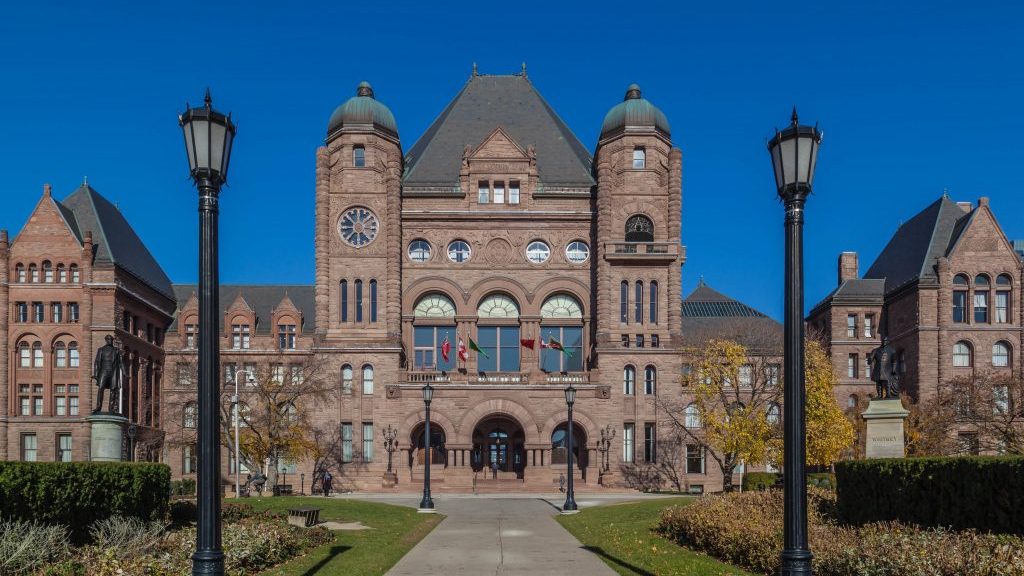Ontario’s More Homes, More Choice Act is under fire from a Toronto city councillor for being too developer-friendly, but it’s being praised by the province’s new-home and condominium building community.
Richard Lyall, president of the Residential Construction Council of Ontario (RESCON), says the legislation paves a pathway for the province to patch up a broken system and should spur development.
“I’m not saying it’s perfect and I don’t think the government is even saying that,” he said. “But what the government has said here is, ‘We are really serious about this.’ What they’ve done is recognize that what we’ve been doing doesn’t work, it isn’t working, and no one else has had any real good ideas.
“The Act consists of sensible changes that we’ve been advocating that need to be done. There’s a lot of hyperbole how this is the end of the world and we’re going to be wiping out species, and it’s just not true.”
On the other side of the fence in the debate, Toronto councillor Josh Matlow contends that the legislation removes the few tools the city has to ensure that development is accompanied by infrastructure and social services.
Eliminating these measures could threaten many projects across Toronto,
— Josh Matlow
Toronto City Councillor
He maintains the Act is detrimental because it would return the final say in local planning matters to an unaccountable, unelected provincial body just as the province saw under the Ontario Municipal Board (OMB).
He noted in a newsletter to his constituents that the province’s stated goal of introducing the Act, known as Bill 108, was to increase the supply of housing to make the market more affordable. However, Toronto chief planner Gregg Lintern stated in a report there is limited evidence that will happen.
Matlow said although current measures under the Planning Act haven’t been sufficient to meet the needs of fast-growing areas such as Yonge and Eglinton, they have allowed the community to provide affordable child-care centres, parks, playgrounds, and allocate funding toward important long-term projects.
“Eliminating these measures could threaten many projects across Toronto that are currently in the city’s 10-year capital plan,” including child-care centres, community centres and library expansions,” he said.
Matlow also contended that the changes would lead to a significant transfer of costs from wealthy developers to local residents.
We have people drawing conclusions not based on fact
— Richard Lyall
Residential Construction Council of Ontario
His case was bolstered by a report in the Toronto Star that indicated that housing applications have actually dipped since the provincial planning changes came into effect. The newspaper reported that as of mid-July there had been only 50 new units applied for in midtown and downtown Toronto since Bill 108 came into effect. In contrast, an average of 3,700 units were applied for during the same 80-day period a year earlier.
However, Lyall said the whole notion that the Act caused a decline in housing activity is completely inaccurate.
“We have people drawing conclusions not based on fact,” he said.
Other factors have impacted construction of projects, he said, such as interest-rate increases and the stress test which is now in place to determine if people have enough money for down payments.
Lyall said the change is actually long overdue because past fixes have not worked and the waiting list for housing in Toronto is just getting longer.
RESCON did research with the engineering department at the University of Toronto and found that waiting lists are much longer now and development charges are increasing well beyond what consumers can afford.
Researchers also looked into the time it took for rezoning applications to be approved for 172 residential towers and found that in 2006 it took nine months and by 2016 it was three-and-a-half years.
Lyall said developers must sometimes get approvals from conservation authorities and he believes they take their time processing the applications.
He knows of one developer a few years ago that was told by a conservation authority representative that everything looked good on an application for a 200-unit subdivision and written confirmation, which was needed by the developer to proceed, would be forthcoming but it took a year to get the paperwork.
“Here’s a developer, they’ve got to finance that whole project for another year. When you don’t have at least predictability in the process how do you plan construction?” he asked. “That makes it very, very difficult.”
If a developer wants to build a 20-storey apartment building, for example, there’s no certainty on how long it could take, he said.
“It could take three years, it could take 10 years.”
Lyall said with such a serious lack of affordable housing in Toronto action was needed to spur new development.
An analysis in 2016, based on demographic projections, indicated the city was short 11,000 more units per year than were being built. He believes the figure is now in the 15,000-to-20,000 range.
“Our population is growing well beyond our ability to produce new housing,” he said.
Lyall said many young people are unable to afford down payments or can’t find suitable housing and end up having to stay longer in their parents’ houses because they can’t afford to strike out on their own. He said he isn’t buying Matlow’s contention that municipal councils will lose control of planning matters under the new legislation.
The OMB has, in the past, been unfairly targeted, said Lyall.
“I’m not saying the OMB was perfect but the OMB became a scapegoat and it became a political football. Local politicians might not want to deal with something and it would be forced to go to the OMB and a decision would be made there. The OMB was not the problem,” he said.











It’s a shame when Richard Lyall feels the need to weigh in with an opinion that would obviously benefit his industry-like a wolf in a hen house– Talk about a partisan approach and then trying to sell the notion that nothing is perfect as the credential to justify this tainted logic with such an incongruous statement. The History of this developer/political war has eroded the trust, and selling the murky/transparent nonsensical notion that increasing supply makes the market more affordable is insulting-talk about horse and buggy thinking-Why don’t you try the equivalent-Sub-Prime Mortgages—When there are no controls in place as to who is purchasing the “Homes”, 1st times buyers are out of luck and you know it. Absolute market/investment manipulation…and lowering the building standards might increase profit margins, (it’s not going to decrease the cost of the house and you know that don’t you and you’ve just built politically approved crap ), but at the expense of everybody and everything else….Developers are the necessary Beast at one end of the argument and a disorganized/inefficient political system, at the other. Kudos to the notion that you’re both trying to help-albeit for different self-interests….–Perhaps looking at the Sidewalk Labs type of approach ( minus the under the table negotiations ) – a self-sustaining infrastructure, a balance/synergy and symbiotic relationship between the nature of environment-flora and fauna and energy and human beings- The current approach is archaic from the development/ers to the hesitated, inactioned planning of the political system, with the underlying invested interests of the financial institutions….Politicians have got to make things run faster and efficiently and if they can’t, perhaps the job descriptions and methods that put unqualified personnel in these positions , must change too. Developers-We know it’s about the Money-please don’t try to sell us on an altruistic angle-You all know what needs to be done, getting on the same page is the hard part-But I think we can do and need to Hire and Contract better-and I’m sure there is a waiting list we can consult–Do you want to play nice now….